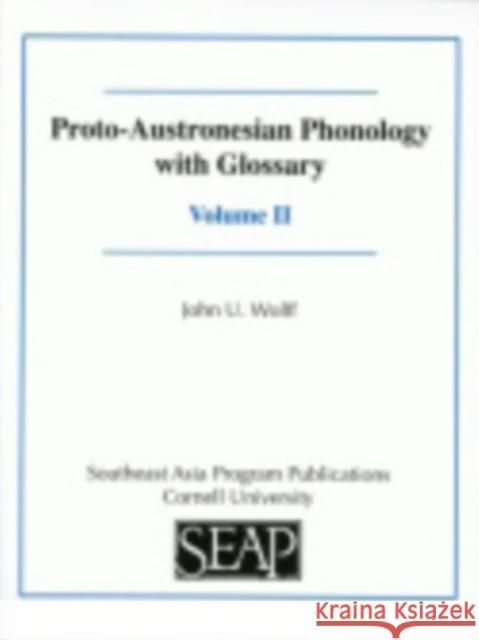Proto-Austronesian Phonology with Glossary » książka
Proto-Austronesian Phonology with Glossary
ISBN-13: 9780877275336 / Angielski / Miękka / 2010 / 610 str.
Proto-Austronesian Phonology with Glossary
ISBN-13: 9780877275336 / Angielski / Miękka / 2010 / 610 str.
(netto: 107,02 VAT: 5%)
Najniższa cena z 30 dni: 111,68
ok. 22 dni roboczych.
Darmowa dostawa!
This work, divided into two volumes, is the study of the history of words in the Austronesian (An) languages their origin in Proto-Austronesian (PAn) or at later stages and how they developed into the forms that are attested in the current An languages. A study of their history entails the reconstruction of the sound system (phonology) of PAn and an exposition of the sound laws (rules) whereby the original sounds changed into those attested in the current An languages. The primary aim of this work is to examine exhaustively the forms that can be reconstructed for PAn and also for the earliest stage after the An languages began to spread southward from Taiwan. For the later stages that is, forms that can be traced no further back than to the proto-languages of late subgroups, we do not attempt to be exhaustive but confine ourselves to only some of the forms that are traceable to those times, treating those that figure prominently in the literature on historical An linguistics or those that have special characteristics important for understanding in general how forms arose and the processes that led to change. In short, the aim of this study is not just to reconstruct protomorphemes and order the reflexes according to the entries they fit under, but rather to account for the history of each fom1 that is attested and explain what happened historically to yield the attestations.The scond volume Proto-Austronesian Phonology consists of four parts. Part H is the glossary, which gives the reconstructed protomorphemes and cites the attested reflexes in our thirty-seven languages and in other languages listed according to principles enunciated in A1.2. Part I provides finder lists from the English translation and also from the reconstructions made by Blust ACD (1995b) and Dempwolff (1934-1938). These are followed by the finder lists for the thirty-seven languages treated in detail. Part J gives the bibliography, and, finally, Part K provides an index of all topics discussed in Parts A G."











